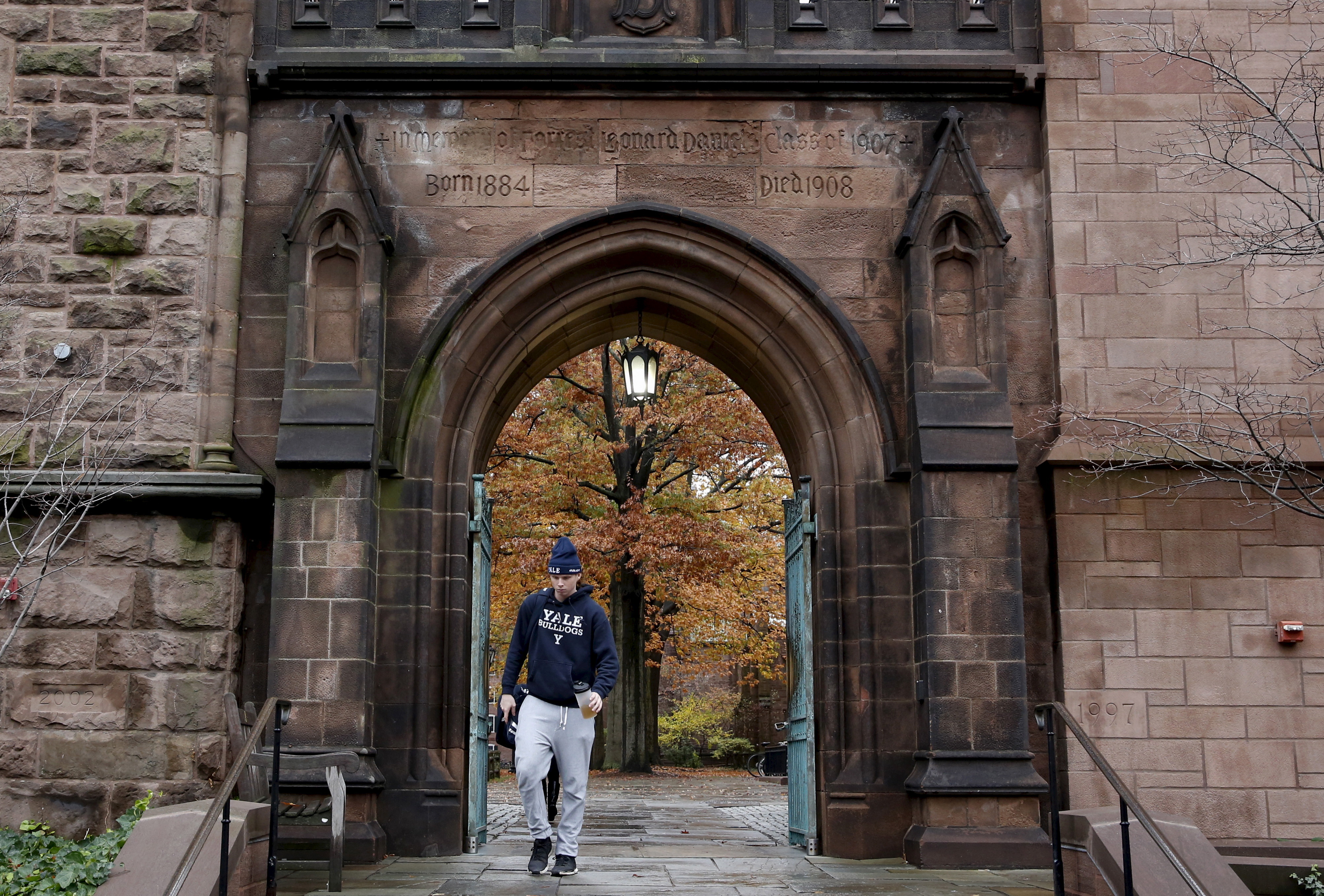These are the world’s best universities right now

Oxford has been named the world’s best university for the fifth consecutive year. Image: REUTERS/Shannon Stapleton

Get involved with our crowdsourced digital platform to deliver impact at scale
Stay up to date:
Education
- The University of Oxford has been named the world’s best for the fifth consecutive year.
- China’s Tsinghua University has become the first Asian university to enter the top 20.
- Eight of the top 10 are US universities for the first time.
- This year sees 141 new entrants in the Times Higher Education rankings.
- University leaders warn COVID-19 will have a lasting impact on academia.
Oxford has been named the world’s best university for the fifth consecutive year. But the latest rankings show that it’s China's universities that are the rising stars of global higher education.
Tsinghua University enters the coveted top 20 of the Times Higher Education World University Rankings this year, a distinction previously only bestowed on European and US institutions.
Six of the world’s top 100 global universities are from China – double the number in the previous year – while all but one of the country’s top 20 institutions have either bettered or maintained their 2020 rankings.

The United States dominates the top of the list – eight of the top 10 universities are in the US with Stanford, Harvard and the University of California, Berkeley all improving their rankings. California Institute of Technology and Princeton both slipped down the table.
The tables are based on performance indicators in five areas: teaching; research; academic citations; international outlook; and income. The UK’s Cambridge University registered its lowest ranking since 2014, dropping three places from 3rd to 6th in the table.
Cambridge’s overall score in the 2021 rankings was 94.0, down from an overall 94.4 in the 2020 survey and 94.8 the previous year. By contrast, the University of California, Berkeley, improved its ranking from 13th to 7th by boosting its score from 88.3 to 92.2 in one year.
China’s Double First research
Leading research universities in the West are also coming under pressure from their Chinese counterparts. Analysis for the league table shows the research quality of Chinese universities is beginning to converge on that of US universities.
Measured by the number of academic citations received, Times Higher Education says some middle-ranking Chinese universities now outperform similarly ranked US universities and median research income is now higher for Chinese universities than those in the US.
The Chinese government’s policy to create world-class research universities, launched in 2015, also known as the Double First Class programme, has seen 42 institutions selected for development to world-class status.
Wei Zhang, a lecturer in education at the UK’s University of Leicester, told Times Higher Education that the impact of COVID-19 on US universities and their research grants, coupled with uninterrupted funding in China, “may give Chinese universities the opportunity to close the gap with US institutions.”
Uncertain outlook
This year’s World University Rankings include 1,500 institutions from 93 countries and regions. Rankings editor Ellie Bothwell says despite the good news for some universities, the future for the sector looks bleak thanks to COVID-19.
Despite the high profile of some universities developing vaccines, treatments and tracking the progress of the pandemic, a recent study by Institute for Fiscal Studies suggested as many as 13 UK universities might have to close.
What is the World Economic Forum doing to manage emerging risks from COVID-19?
It said university income in the UK could be halved and less prestigious institutions were particularly vulnerable because they entered the pandemic with weakened finances.
Bothwell says some US universities have already permanently closed or merged with other institutions and as many as 21,000 full-time university staff in Australia risk losing their jobs before the end of the year.
Many students around the world are using digital platforms to study remotely. As far back as 2014, the World Economic Forum urged universities to embrace technologies like online courses, adding: “Universities which will be able to turn their challenges into opportunities will thrive”.
Don't miss any update on this topic
Create a free account and access your personalized content collection with our latest publications and analyses.
License and Republishing
World Economic Forum articles may be republished in accordance with the Creative Commons Attribution-NonCommercial-NoDerivatives 4.0 International Public License, and in accordance with our Terms of Use.
The views expressed in this article are those of the author alone and not the World Economic Forum.
The Agenda Weekly
A weekly update of the most important issues driving the global agenda
You can unsubscribe at any time using the link in our emails. For more details, review our privacy policy.
More on EducationSee all
Natalia Kucirkova
April 17, 2024
Morgan Camp
April 9, 2024
Scott Doughman
March 12, 2024
Genesis Elhussein and Julia Hakspiel
March 1, 2024
Jane Mann
February 28, 2024
Malvika Bhagwat
February 26, 2024








